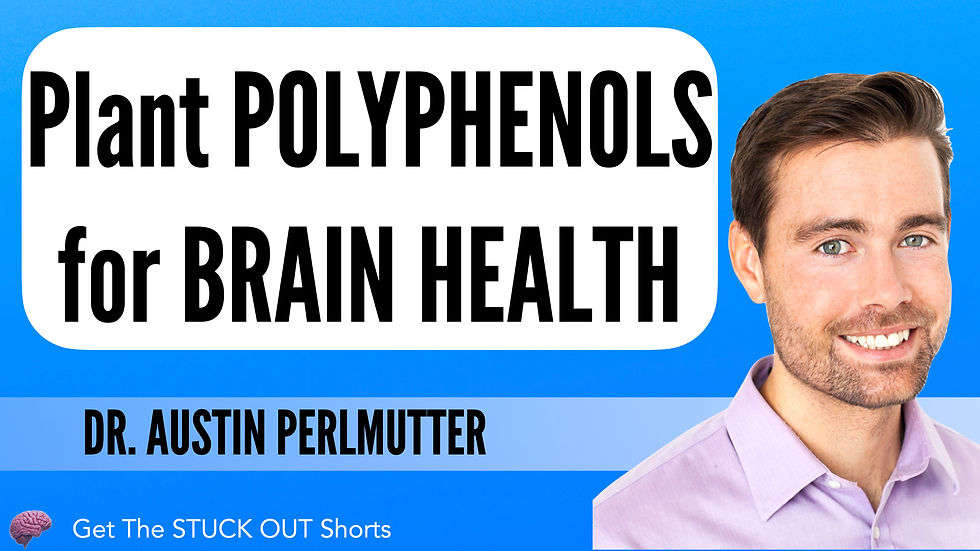3 Ways Polyphenols May Boost the Brain
- Austin Perlmutter, MD

- Jun 4, 2023
- 2 min read
Updated: Apr 30, 2024
And some great sources!
By Austin Perlmutter, MD

KEY POINTS
Plants in are packed with thousands of molecules called polyphenols that may exert positive effects on overall and especially brain health.
Polyphenols are found in the best diets for brain health
Polyphenols may positively influence immune, antioxidant and neuroplastic pathways related to brain health
Polyphenols may beneficially alter our gut microbiome
When you consider the nutrients in your food, you might think about the carbs, proteins and fats (macronutrients), as well as the vitamins and minerals (micronutrients). Yet food is so much more than this. Plants in particular are packed with thousands of molecules called polyphenols that they use as anti-stress chemicals. We’re now learning that these tiny chemicals may exert positive effects on overall and especially brain health. Here are 3 reasons you should consider adding more polyphenol-rich sources to your diet, as well as some great sources:
1. Polyphenols are found in the best diets for brain health
The best-studied diets for long term brain health seem to be variants of the Mediterranean diet, a pattern of eating that prioritizes fruits and vegetables, nuts, seeds, spices and herbs, and often olive oil (and sometimes a bit of red wine) all of which are rich in polyphenols. The Mediterranean diet is currently at the top of the list for evidence-backed dietary strategies to prevent a number of diseases, and recently has garnered some data suggesting it may help prevent certain cases of dementia and depression. These benefits are considered by some to be a reflection of its rich polyphenol content.
2. Polyphenols may positively influence immune, antioxidant and neuroplastic pathways related to brain health
With upward of 8000 different polyphenols in plants, it’s a big oversimplification to assume that they all work in the same way, even though there’s probable overlap. Curcumin, a polyphenol found in turmeric, has been prized for its immune related anti-inflammatory effects, while EGCG (a polyphenol found in green tea) may act as an antioxidant. These molecules and many others may also have helpful effects on genetic expression by acting on epigenetic regulation. Polyphenols are also thought to act on brain rewiring (neuroplasticity) in part by increasing the molecule BDNF.
3. Polyphenols may beneficially alter our gut microbiome
One recent reconceptualization of polyphenols relates to their ability to help balance out the gut microbiome. Many polyphenols in our food pass into the large intestine unabsorbed and come into contact with our gut bacteria. Through their direct and indirect actions on these microbes, polyphenols may suppress unhealthy bacteria and increase our ratio of healthy bugs. With the gut-brain connection linked strongly to the health of our microbiome, this is important data.
Where to get more polyphenols
Polyphenols can be found in innumerable plant foods, but some great places to start if you’re looking to get more of these in your diet include
-Colorful and diverse fruits and vegetables
-Herbs and spices
-Olive oil
-Nuts and seeds
-Dark chocolate/cocoa
-Coffee and tea (can be decaf/herbal)
-Stress adapted plants (one interesting example is Himalayan Tartary Buckwheat)
Want to learn more? Check out the video below! ↓




Comments